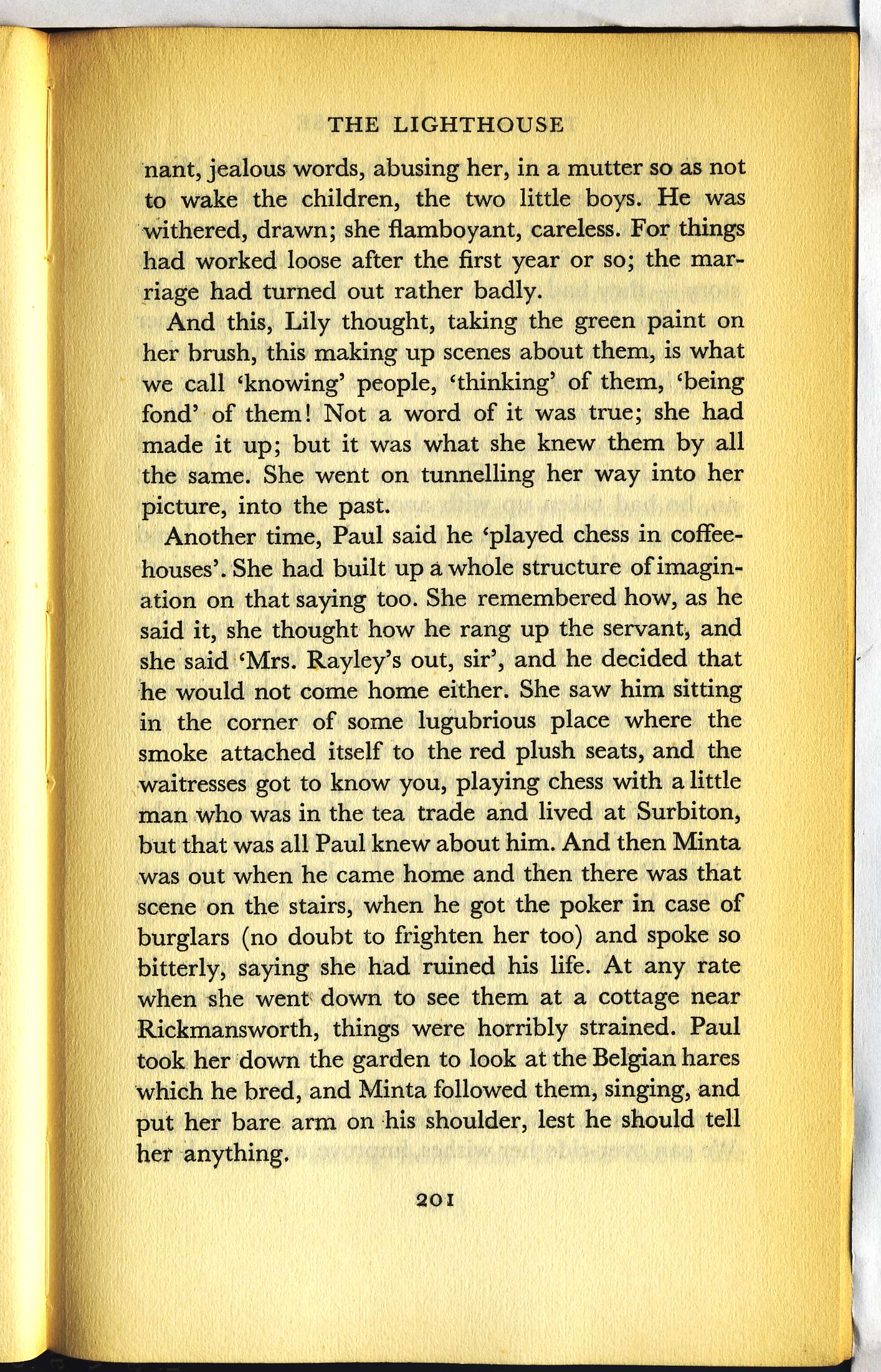
And this, Lily thought, taking the green paint onher brush, this making up scenes about them, is whatwe call ŌĆśknowingŌĆÖ people, ŌĆśthinkingŌĆÖ of them, ŌĆśbeingfondŌĆÖ of them! Not a word of it was true; she hadmade it up; but it was what she knew them by allthe same. She went on tunnelling her way into herpicture, into the past.
Another time, Paul said he ŌĆśplayed chess in coffee-housesŌĆÖ. She had built up a whole structure of imagin-ation on that saying too. She remembered how, as hesaid it, she thought how he rang up the servant, andshe said ŌĆśMrs. RayleyŌĆÖs out, sirŌĆÖ, and he decided thathe would not come home either. She saw him sittingin the corner of some lugubrious place where thesmoke attached itself to the red plush seats, and thewaitresses got to know you, playing chess with a littleman who was in the tea trade and lived at Surbiton,but that was all Paul knew about him. And then Mintawas out when he came home and then there was thatscene on the stairs, when he got the poker in case ofburglars (no doubt to frighten her too) and spoke sobitterly, saying she had ruined his life. At any ratewhen she went down to see them at a cottage nearRickmansworth, things were horribly strained. Paultook her down the garden to look at the Belgian hareswhich he bred, and Minta followed them, singing, andput her bare arm on his shoulder, lest he should tellher anything.201









